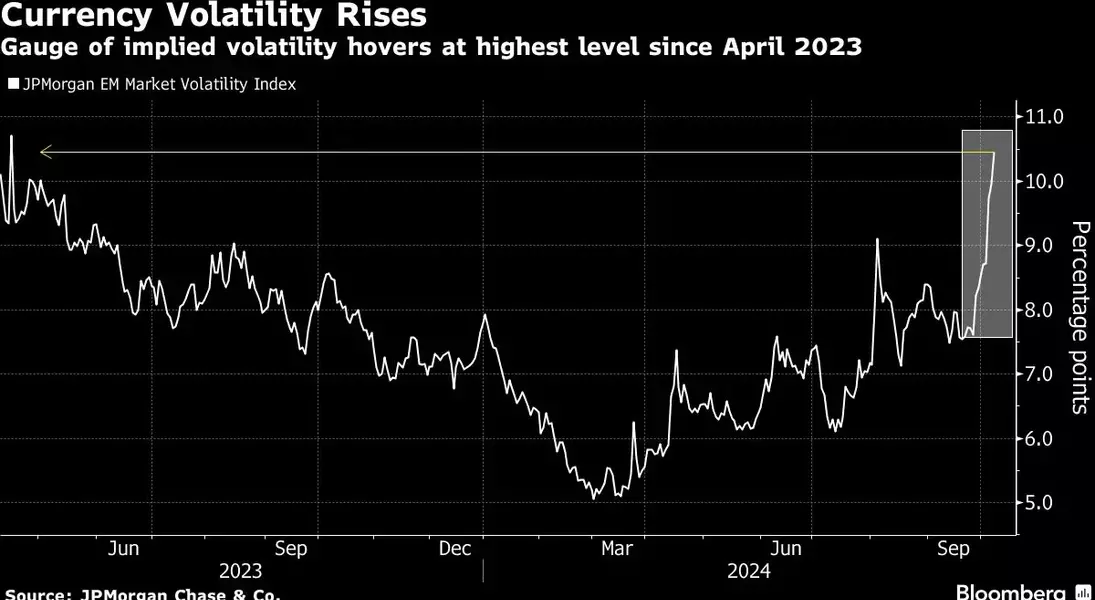Emerging Markets Brace for Volatility Ahead of US Election
As the US presidential election approaches, investors in emerging markets are bracing for a surge in currency volatility, a trend that has not been seen in six years. The race between former President Donald Trump and current Vice President Kamala Harris is expected to have a significant impact on the performance of developing-nation assets, with the potential for significant market disruptions depending on the outcome.Navigating the Uncertain Terrain of Emerging Markets
Heightened Currency Volatility Signals Investor Jitters
The most recent data from JPMorgan Chase & Co. indicates that one-month implied volatility in developing-nation currencies has climbed for eight consecutive days, marking the longest streak since January 2019. This surge in volatility reflects the degree of nervousness among traders as they grapple with the potential implications of the upcoming election, overshadowing concerns about the ongoing COVID-19 pandemic, elevated inflation, and the more than a dozen debt defaults in emerging markets.Divergent Outcomes Depending on the Election Result
The two presidential candidates are expected to have vastly different impacts on emerging-market assets. A Harris presidency would likely result in policy continuity, limiting potential market volatility and potentially triggering a relief rally in risk assets, according to strategists at UBS Group AG. Conversely, a Trump victory would likely be more disruptive, as investors reassess the risks associated with his trade policies and geopolitical tensions, potentially leading to further volatility in developing-nation currencies.The Shifting Landscape of Emerging Market Currencies
The election uncertainty comes after emerging-market currencies capped a three-month rally, driven by a dovish Federal Reserve and a weakening US dollar. However, recent strength in the US labor market has dampened the likelihood of another outsized interest-rate cut, and fears of more expansive fiscal policy following the US election – and the potential for higher interest rates for longer – are now spooking investors.Navigating the Volatility: Strategies for Emerging Market Investors
JPMorgan's measure of future currency volatility has risen above 10 percentage points, reaching its highest level since May 2023. This widening gap between emerging-market and G7 currency turbulence has led to a five-day losing streak for MSCI's EM Currency Index, the longest since July. Societe Generale's head of emerging-markets research, Phoenix Kalen, attributes this to the uncertainties surrounding the US election, with investors putting on hedges and driving up volatility.The Shifting Sands of Geopolitics and Trade Policy
The race between Trump and Harris has taken on added significance in the context of emerging markets, as the outcome could have far-reaching implications for global trade and geopolitical dynamics. Investors are closely monitoring the candidates' positions on issues such as tariffs, sanctions, and diplomatic relations, as these factors can significantly impact the performance of developing-nation assets.Navigating the Uncertain Terrain: Strategies for Emerging Market Investors
As the US election approaches, emerging-market investors must navigate a complex and volatile landscape. The potential for policy shifts, trade disruptions, and geopolitical tensions has heightened the need for a nuanced and strategic approach to portfolio management. Diversification, risk management, and a keen understanding of the underlying drivers of emerging-market performance will be crucial in weathering the storm and capitalizing on potential opportunities.You May Like


